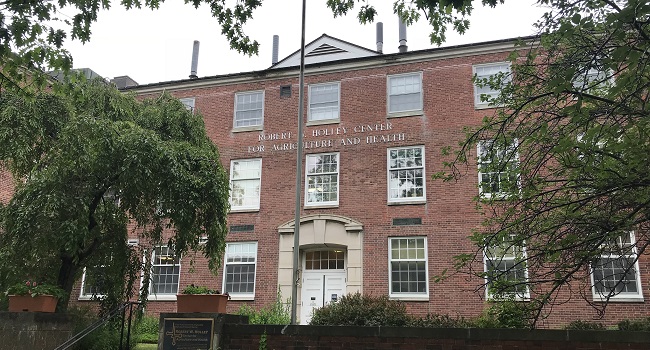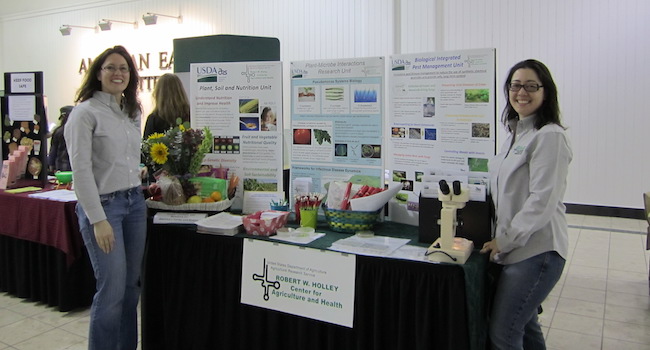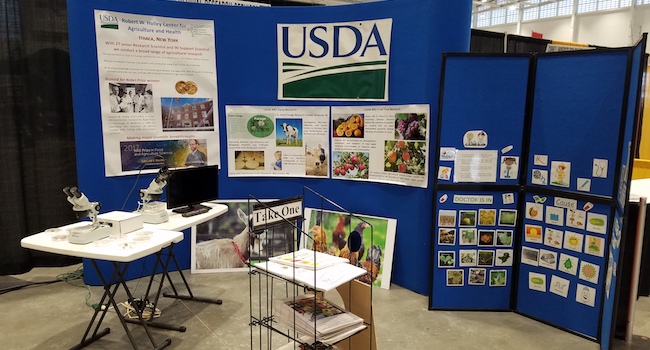Photo Carousel Links
The Robert W. Holley Research Center for Agriculture and Health (RHRC) is situated on the Cornell University campus in beautiful Ithaca, NY. The center is comprised of two research units: ‘Plant, Soil and Nutrition Research’ and ‘Emerging Pests and Pathogens Research’
The Robert W. Holley Center opened in the autumn of 1940. Originally named the Federal Nutrition Laboratory, it employs 50 staff and many visiting scholars from around the globe.
... overlooking beautiful cayuga lake, one of the 11 Finger Lakes - a region of New York State, named for its series of long, thin lakes. The surrounding area is marked by high gorges, many with dramatic waterfalls.
Robert W. Holley received the Nobel Prize in Physiology or Medicine in 1968 for describing the structure of alanine transfer RNA, linking DNA and protein synthesis.
Holley Center research scientist's work make the covers of major scientific journals
The Robert W. Holley Center participates in the Empire Farm Days annually. The event is the largest outdoor agricultural trade show in the Northeastern U.S., showcasing all the latest tractors, farm implements, dairy industry innovations alongside working demonstrations, live animal seminars, and more than 600 exhibits loaded with the latest agricultural information for successful farming.
Feb. 2019, ARS employees from Ithaca and Geneva, NY, participated in the New York State Farm Show in Syracuse, NY. This annual farm show is one of the largest agriculture shows in the Northeast, attracting over 25,000 visitors and 400 vendors.
Mission
The Robert W. Holley Center for Agriculture and Health consists of two Research Units: the Plant, Soil and Nutrition Research Unit, and the Emerging Pests and Pathogens Research Unit. The Center conducts a broad range of agricultural research, including: 1) the elucidation of genetic systems related to virulence in important plant pathogens, 2) development of the knowledge and tools to provide innovative pest-disease management to reduce the use of synthetic chemical pesticides and to provide, safe, long-term control of agricultural pests, 3) improvement of crops for human nutrition/health and tolerance to soil-related abiotic stresses, 4) research integrating computational biology, bioinformatics, and functional genomics to study cereal genomes and important aspects of crop biology in multiple crops, and 5) biotechnology risk assessment. A unifying theme for the Center is the synthesis and integration of state-of-the-art methods in molecular biology, genetics, biochemistry, physiology, and microbiology as well as in bioinformatics/computational biology to dissect and understand both complex plant traits and microbial processes important for agricultural and environmental stewardship. This information is used to facilitate crop improvement and environmental protection through both traditional and molecular breeding as well as plant biotechnology and improved agricultural and environmental practices.







